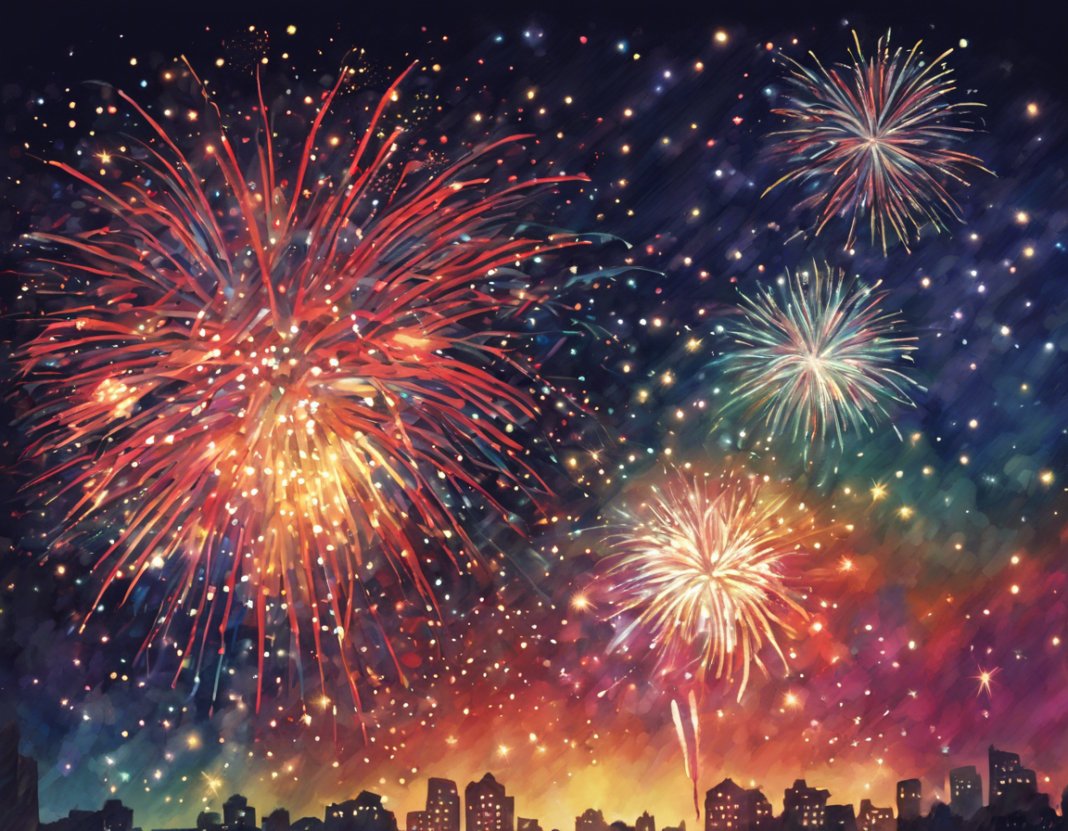As the night sky lights up with a myriad of colors and shapes, our hearts are filled with wonder and awe. Fireworks have a way of captivating our senses and igniting a sense of joy and excitement within us. The loud booms, the dazzling displays, and the lingering smell of gunpowder all come together to create a truly magical experience. In this article, we will delve into the world of fireworks and explore the reasons behind their undeniable ability to spark emotions in our hearts.
The History of Fireworks
Fireworks have a rich history that dates back thousands of years. China is credited with inventing fireworks around 200 B.C., using them in celebrations and festivals to ward off evil spirits. The art of creating fireworks spread to other parts of the world, with the Middle East and Europe adopting them for various ceremonial occasions. Today, fireworks are synonymous with holidays like Independence Day in the United States and Diwali in India, where they are used to symbolize joy and victory.
The Science Behind Fireworks
At the core of every breathtaking fireworks display is a complex combination of chemistry and physics. Gunpowder is the key ingredient in fireworks, typically comprising a mixture of potassium nitrate, sulfur, and charcoal. When the fireworks are ignited, the gunpowder combusts, creating a rapid expansion of gases that propels the fireworks into the sky. Different chemicals are added to the gunpowder to produce a range of colors and effects, such as strontium for red, barium for green, and copper for blue.
The Emotional Impact of Fireworks
Fireworks have a unique ability to evoke a wide range of emotions in people. The sight of vibrant colors lighting up the night sky can instill a sense of wonder and amazement. The deafening booms and crackles can trigger a rush of excitement and adrenaline. For many, fireworks symbolize celebration and joy, bringing people together in a shared moment of festivity. Whether it’s watching fireworks with loved ones on New Year’s Eve or cheering at a fireworks show during a summer festival, the experience is often deeply ingrained in our memories.
The Psychology of Fireworks
Psychologists believe that fireworks have a profound impact on our emotions due to their ability to trigger a sense of nostalgia and childlike wonder. The unpredictable nature of fireworks, coupled with their brief but intense bursts of light and sound, can elicit a strong emotional response in us. This sense of awe and excitement is reminiscent of the feelings we had as children, watching fireworks with wide-eyed amazement. In a world filled with stress and worries, fireworks provide a brief escape into a realm of pure beauty and magic.
The Cultural Significance of Fireworks
Fireworks play a significant role in various cultures around the world, often symbolizing different meanings and traditions. In Japan, fireworks, known as “hanabi,” are used to mark special events like summer festivals and religious ceremonies. In Spain, fireworks are an integral part of traditional celebrations like Las Fallas in Valencia. In France, fireworks are synonymous with Bastille Day, commemorating the French Revolution. Each culture infuses its own unique symbolism and rituals into the use of fireworks, making them a universal language of joy and festivity.
The Environmental Impact of Fireworks
While fireworks are undeniably beautiful, they also have a significant environmental impact. The chemicals used in fireworks can release pollutants into the air and water, potentially harming ecosystems and human health. The debris from fireworks, such as spent casings and cardboard tubes, can litter the environment, leading to pollution and waste. In recent years, there has been a growing concern over the environmental consequences of fireworks, prompting efforts to develop more eco-friendly alternatives.
FAQs (Frequently Asked Questions)
Q: Are fireworks safe?
A: When handled properly by trained professionals, fireworks can be safe. It is crucial to follow safety guidelines and regulations to prevent accidents.
Q: Why do fireworks make loud noises?
A: The loud noises produced by fireworks are a result of the rapid expansion of gases when the gunpowder combusts, creating a shockwave that we perceive as sound.
Q: How are different colors produced in fireworks?
A: Different metal salts are added to fireworks to produce various colors when ignited. For example, strontium produces red, barium produces green, and copper produces blue.
Q: Are there eco-friendly alternatives to traditional fireworks?
A: Yes, there are eco-friendly fireworks that use biodegradable casings and produce fewer pollutants. These alternatives are becoming increasingly popular due to growing environmental concerns.
Q: What is the significance of fireworks in different cultures?
A: Fireworks hold various cultural significances, symbolizing celebration, victory, and spirituality in different cultures around the world.
In conclusion, fireworks have a magical quality that transcends language and culture, touching our hearts and sparking emotions that words alone cannot express. Whether they light up the sky on a special occasion or illuminate our spirits in times of darkness, fireworks have a way of bringing people together in a shared moment of wonder and joy. So, the next time you watch a fireworks display, let yourself be swept away by the beauty and magic of these dazzling creations, and allow them to ignite a spark of pure emotion in your heart.
